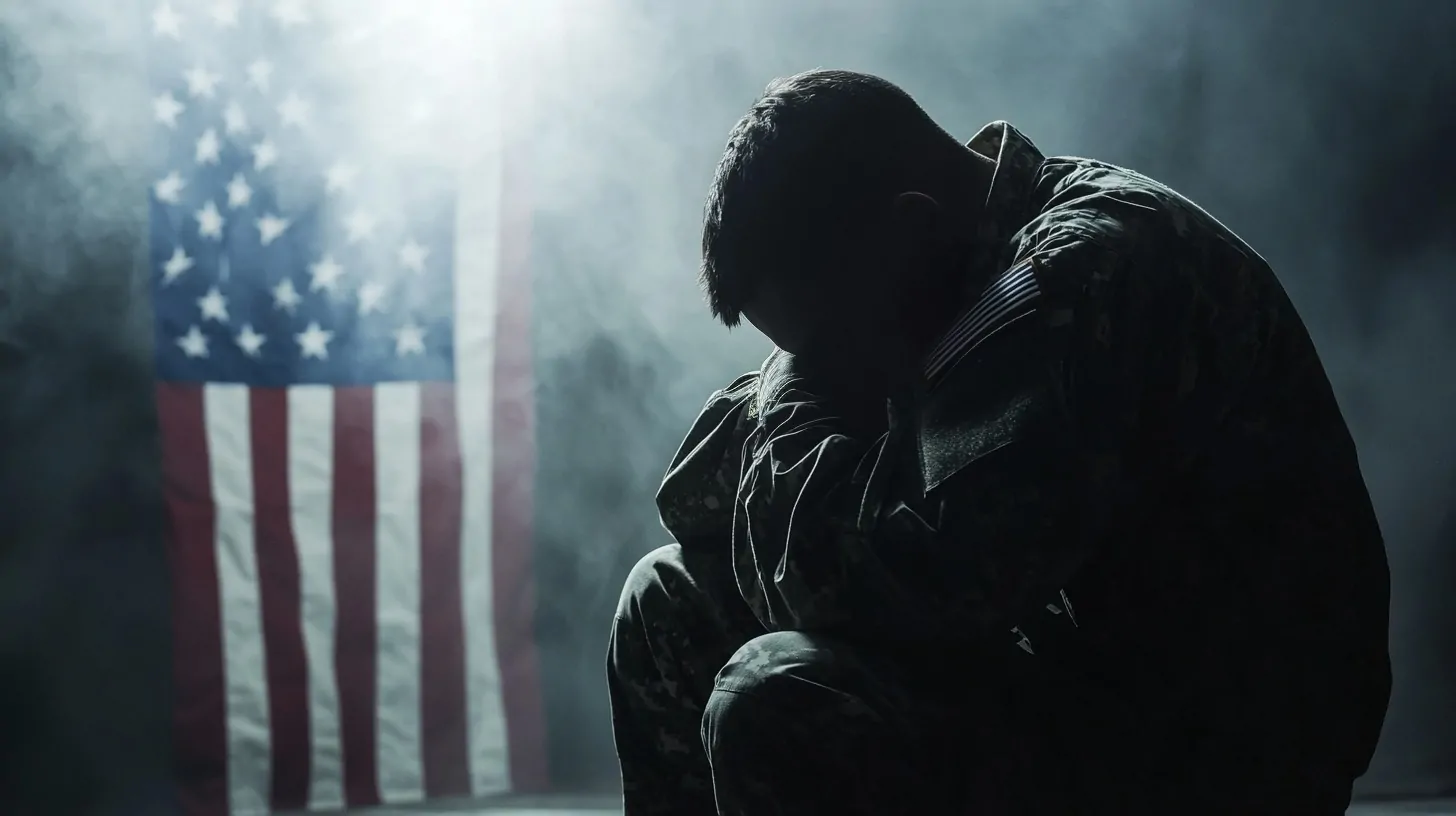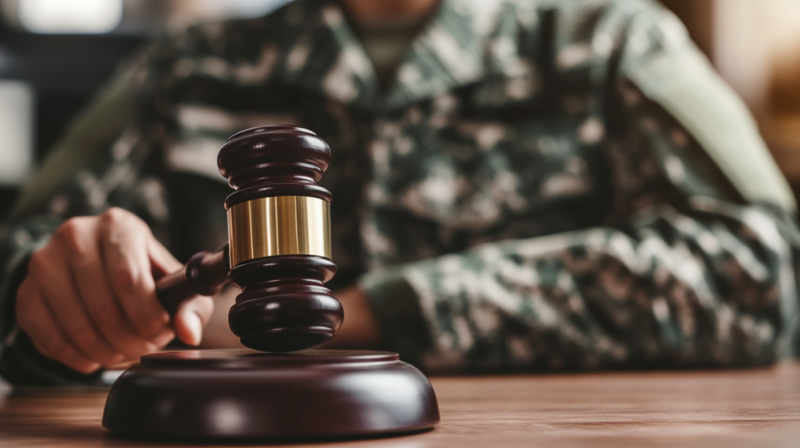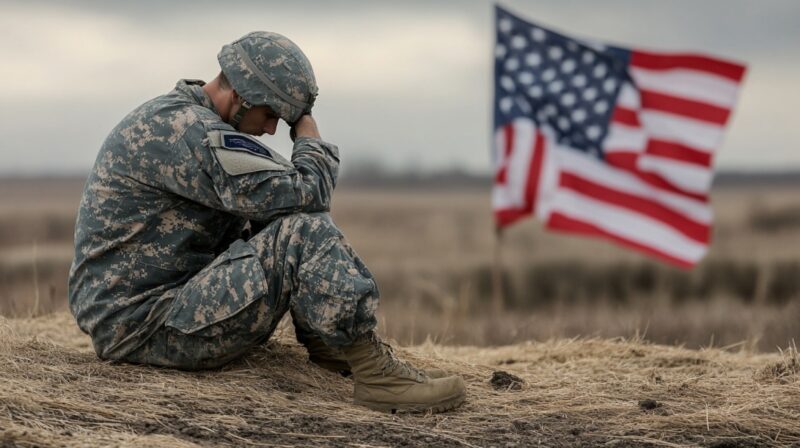PTSD affects a large number of military veterans and has a direct impact on mortality rates. Many veterans struggle with long-term mental health challenges after service, leading to increased risks of suicide, accidental deaths, and serious medical conditions.
Studies have shown that PTSD contributes to higher death rates due to factors like substance abuse, chronic illness, and self-harm.
Addressing PTSD is essential to improving the overall well-being and survival of veterans.
Effective treatment, support systems, and awareness can make a difference in reducing preventable deaths.
Why Suicide Rates Are Higher Among Veterans with PTSD
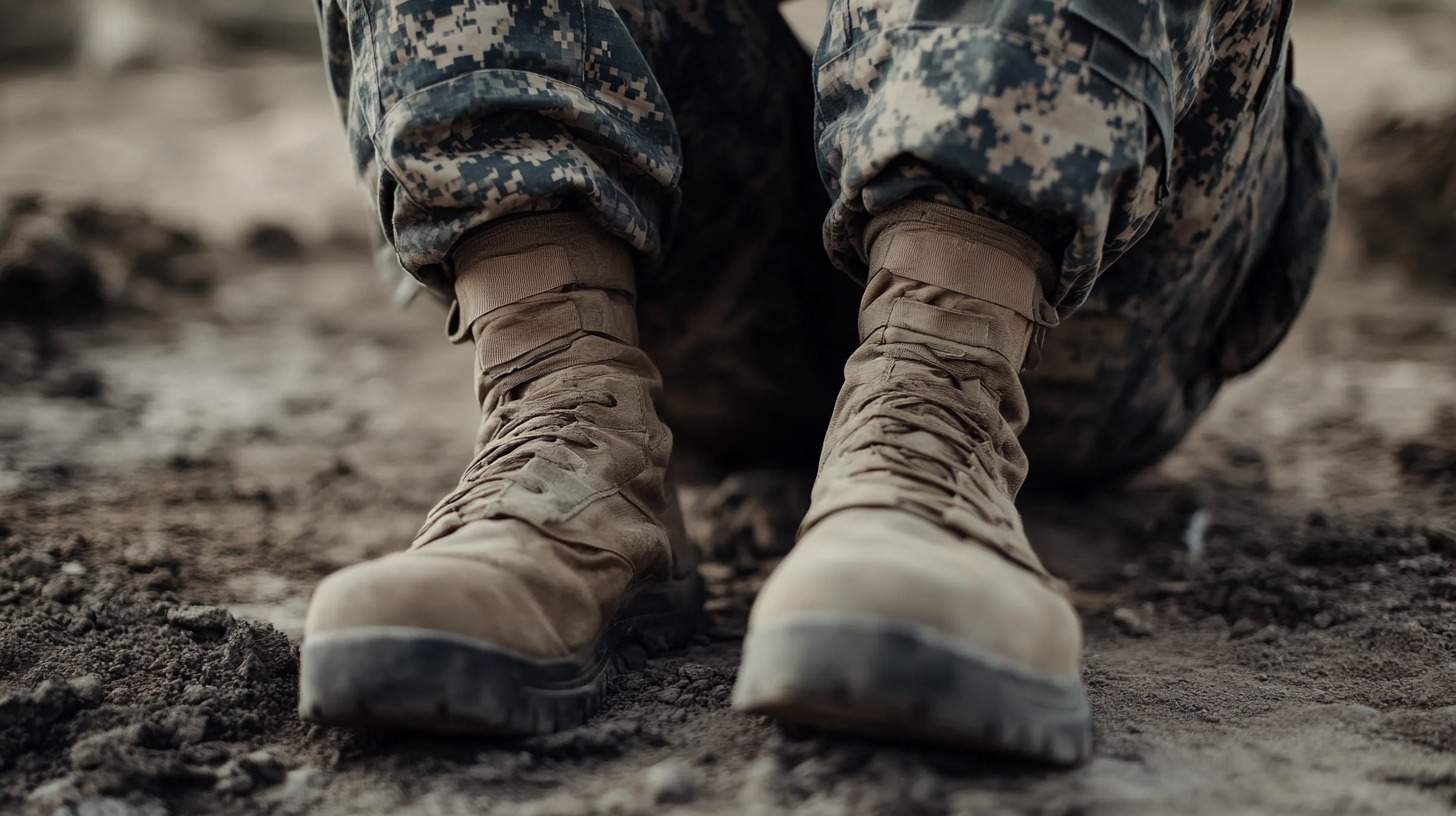
PTSD affects many veterans, leading to an increased risk of suicide. Many struggle with memories of war, survivor’s guilt, and severe anxiety.
The lack of proper mental health care, social isolation, and substance abuse make the situation worse.
Suicide among veterans is a national crisis, backed by real numbers showing the severity of the issue.
The reports state that veterans with PTSD are twice as likely to die from suicide compared to the general population.
And we went even deeper, by exploring the study provided by the U.S. Department of Veterans Affairs.
The results are concerning, as the suicide mortality rate is 2.52 times higher than the general population.
Some veterans do not receive proper treatment, either due to failures in the VA system, lack of mental health services, or misdiagnosis. In many cases, families seek legal action for wrongful death when a veteran dies due to neglect or improper care.
In Illinois, Powell and Pisman Injury Lawyers help families file Wrongful Death Settlements when a veteran’s death could have been prevented.
If a medical provider, government agency, or care facility failed to provide proper mental health care or crisis intervention, families may have a legal case. These cases aim to hold institutions accountable and provide financial relief to surviving family members.
What Needs to Change
- More accessible mental health care for veterans.
- Stronger crisis intervention programs to prevent suicide.
- Legal accountability for neglect in mental health treatment.
Long-Term Health Risks Veterans Face After Trauma
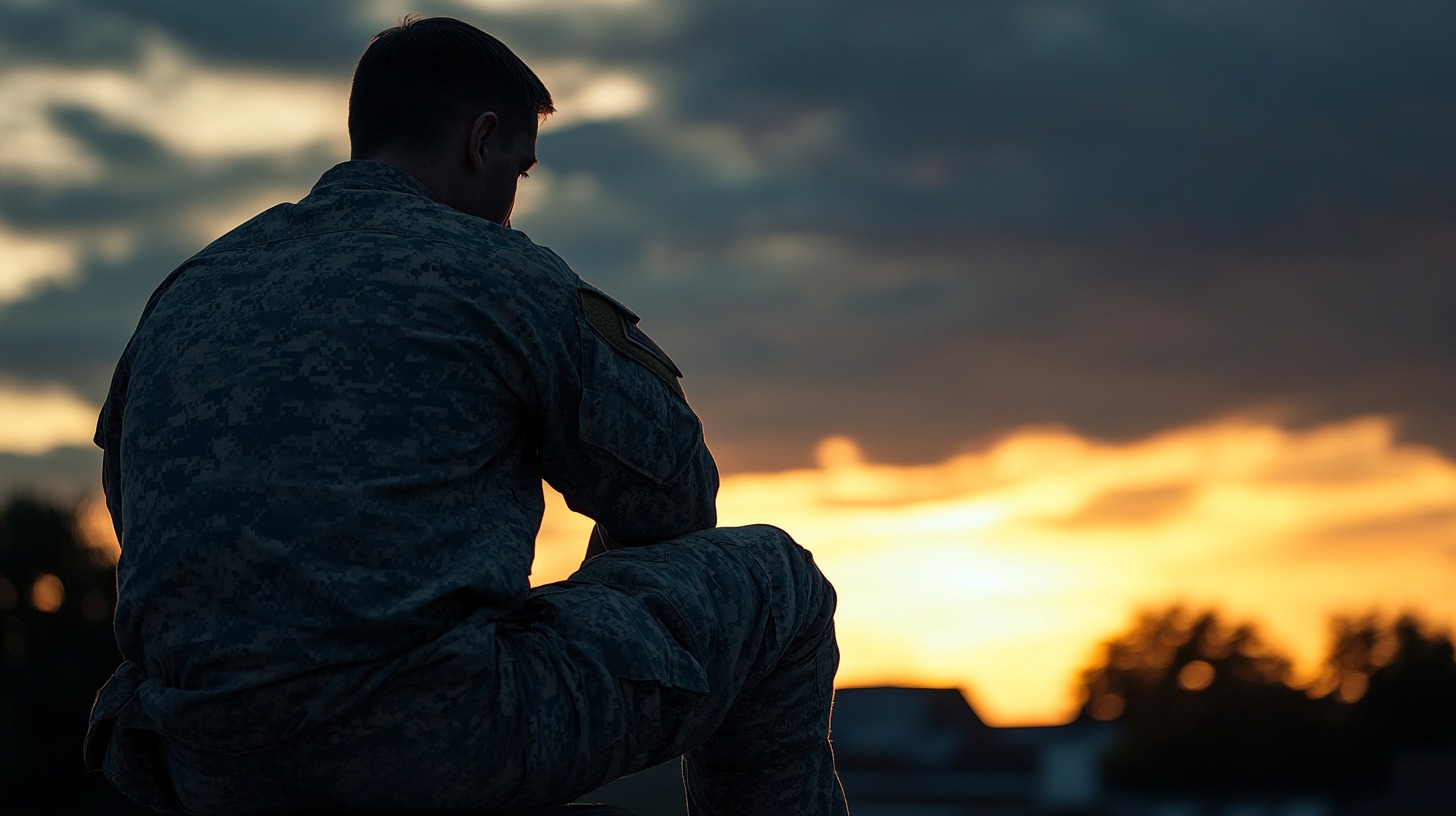
PTSD does not only affect mental health. Many veterans with PTSD suffer from physical health problems that shorten their lifespan. Chronic stress weakens the body, increasing the risk of serious diseases. Lack of proper care and self-destructive behavior make the situation worse.
PTSD and Increased Risk of Deadly Diseases
Veterans with PTSD have a higher risk of developing chronic illnesses than those without PTSD.
- Heart disease – Chronic stress raises blood pressure and damages the heart.
- Diabetes – Studies show that veterans with PTSD have a higher rate of Type 2 diabetes
- Liver disease – Many veterans with PTSD struggle with alcohol abuse, which increases the risk of chronic liver disease and liver failure.
- Weakened immune system – PTSD increases stress hormones, making the body vulnerable to infections and diseases.
A study in BMC Psychiatry found that PTSD is linked to a 32% higher risk of mortality, showing that untreated PTSD leads to long-term health complications.
Substance Abuse and Its Deadly Effects

Many veterans turn to alcohol or drugs to cope with PTSD symptoms. This increases the risk of overdose and serious health problems.
- Opioid addiction due to pain from combat injuries.
- Alcoholism, leading to liver failure and heart disease.
- Overdose deaths, especially when mixing prescription medications with alcohol or illegal drugs.
How Addiction Leads to More Deaths Among Veterans
Many veterans with PTSD turn to alcohol or drugs for relief. At first, it may seem like a way to escape stress, fear, or pain. But addiction takes hold fast, making everything worse. What starts as a coping method often leads to reckless behavior, serious health problems, and early death.
PTSD causes anxiety, nightmares, and emotional numbness. Many veterans struggle to sleep, feel detached from family, or battle chronic pain from injuries. Some drink to relax, others take prescription pills, and some turn to illegal drugs. Over time, the body builds a tolerance, forcing higher doses for the same effect. Addiction becomes a daily struggle, controlling both the mind and body.
How Addiction Increases the Risk of Death
Many veterans overdose because they mix substances or take too much without realizing the danger. Alcohol and prescription drugs create a deadly combination. Without medical supervision, even a small mistake can be fatal.
Years of alcohol abuse destroy the liver, leading to organ failure. Many veterans do not notice the damage until it is too late. Drugs weaken the immune system, making infections and diseases more deadly. Simple health issues turn into life-threatening conditions.
Reckless behavior also increases under the influence. Drunk driving, handling weapons, or even falling down stairs can turn deadly. Veterans with PTSD often lose their ability to think clearly, leading to fatal accidents.
Breaking the Cycle of Addiction
Addiction does not have to be a death sentence. Many veterans recover with the right help.
- Veteran rehab programs treat PTSD and addiction together.
- Support groups provide encouragement from others facing the same struggles.
- Therapy helps veterans process trauma without turning to drugs or alcohol.
Family, Friends, and Community Support Can Save Lives
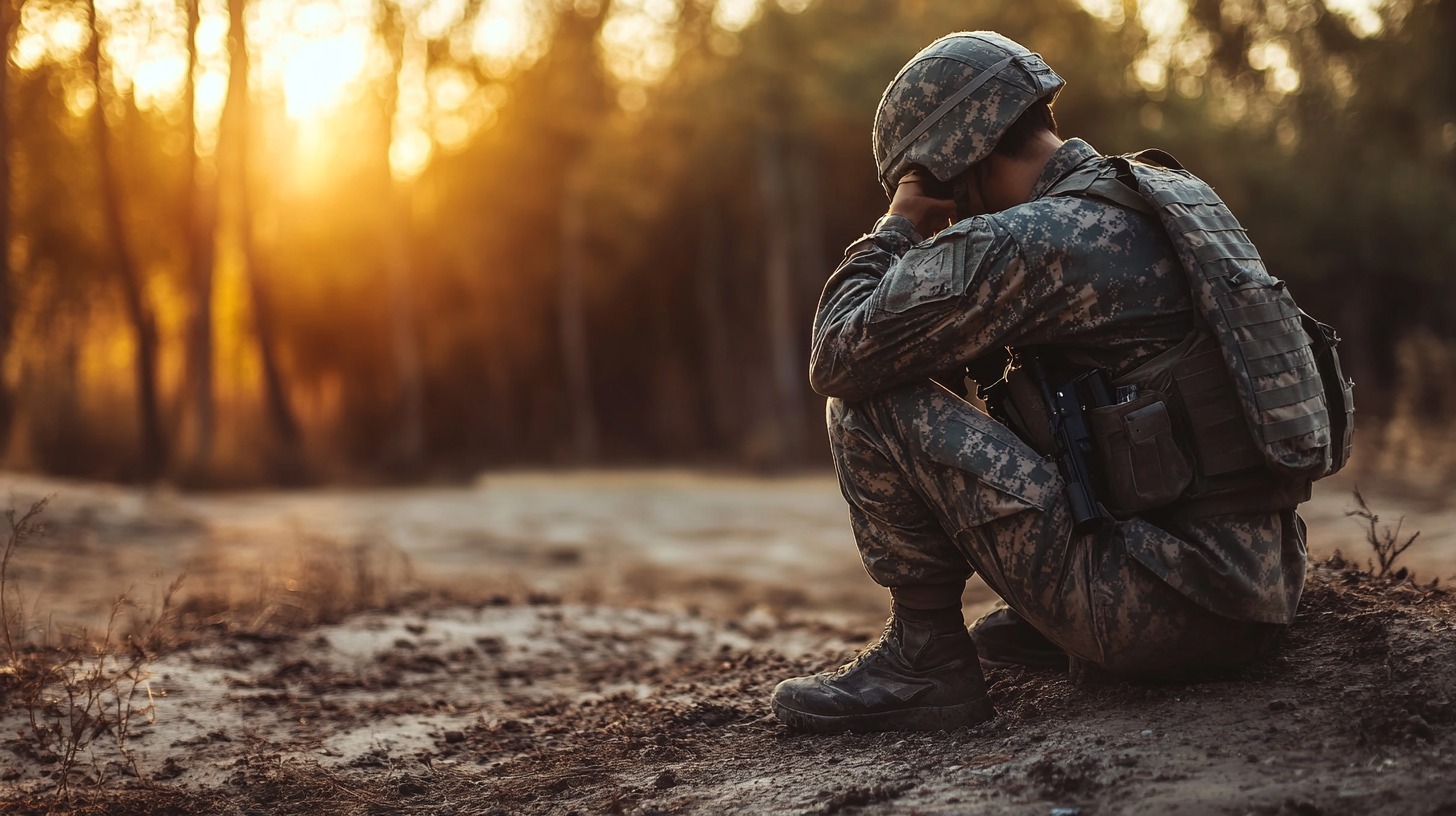
Veterans with PTSD often feel alone. Many struggle to adjust to civilian life, pushing away family and friends. Isolation makes PTSD worse and increases the risk of suicide, addiction, and reckless behavior. Support from loved ones and the community can make a huge difference.
Veterans need people who listen without judgment. Many do not talk about their struggles because they fear being misunderstood. Simple conversations, checking in, and showing concern can remind them they are not alone. Small efforts from family and friends help prevent a downward spiral.
Support is Crucial
Many veterans avoid seeking help because they feel weak or ashamed. Stigma around mental health makes it harder for them to open up. A strong support system encourages them to seek treatment instead of coping alone.
Lack of emotional support leads to destructive choices. Veterans who feel abandoned are more likely to turn to alcohol, drugs, or even suicide. Knowing someone cares can be the difference between life and death.
Ways to Help a Veteran with PTSD
- Stay in touch – Regular phone calls, messages, or visits remind them they are not alone.
- Encourage treatment – Help them find counseling or support groups.
- Be patient – PTSD recovery takes time. Small efforts can have a lasting impact.
Effective Treatments That Lower Risk of Death

PTSD does not go away on its own. Without treatment, symptoms get worse, leading to addiction, health problems, and suicide. The right care can help veterans regain control of their lives and reduce the risk of death.
Many veterans avoid treatment because they do not trust the system or believe nothing will help. Others fear being judged or misunderstood. Finding the right approach is key to getting them the help they need.
What Treatments Work Best?
Therapy helps veterans process trauma in a healthy way.
Cognitive Behavioral Therapy (CBT) and Eye Movement Desensitization and Reprocessing (EMDR) are proven methods for PTSD recovery. These therapies teach coping skills and reduce the impact of traumatic memories.
Medication can also help, but it is not a cure.
Antidepressants and anti-anxiety medications may ease symptoms, but they work best alongside therapy.
What the System Must Do to Protect Veterans
Many veterans struggle to get the care they need. PTSD treatment is available, but long wait times, misdiagnosis, and lack of resources leave too many without help. Some reach out for support and get ignored. Others fall through the cracks of a broken system. When the right care is not provided, lives are lost.
The VA has programs for PTSD, but many veterans do not receive proper treatment. Some are prescribed medications without therapy. Others are dismissed when they ask for help. Long delays prevent early intervention, making symptoms worse. Many give up and turn to self-medication or suicide.
What Needs to Change
- Faster access to PTSD treatment to prevent self-medication and suicide.
- Better crisis intervention to stop deaths caused by neglect.
- Accountability for failures in mental health care.
FAQs
The Bottom Line
PTSD kills veterans in many ways. Suicide, addiction, reckless behavior, and untreated medical conditions all lead to early death. Many veterans never get real help. Some do not trust the system, while others are ignored when they reach out. Too many families lose loved ones because of failures in care and support.
Veterans need treatment that works. Therapy, medical care, and real support can save lives. Family and friends must stay involved. The system must provide faster access to care, not endless waiting and dead-end solutions. Ignoring the problem will only lead to more deaths.
No veteran should have to fight alone.

